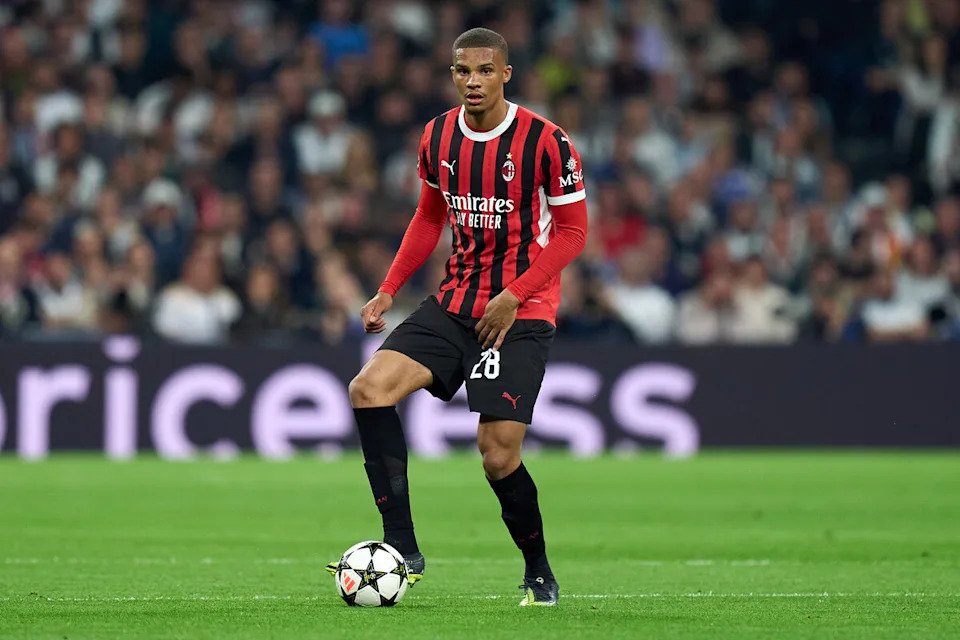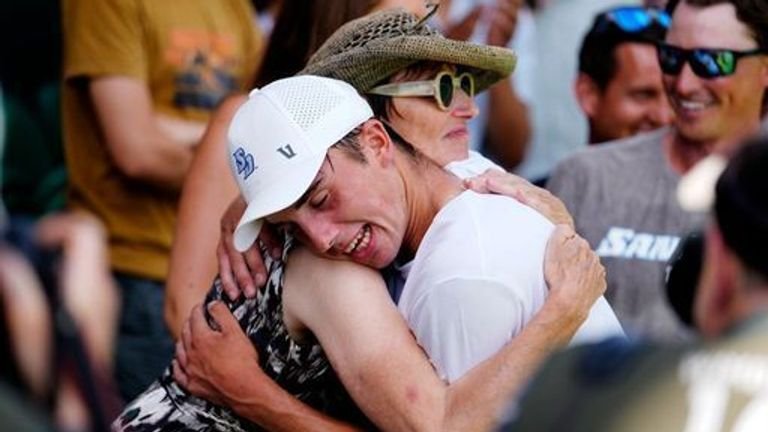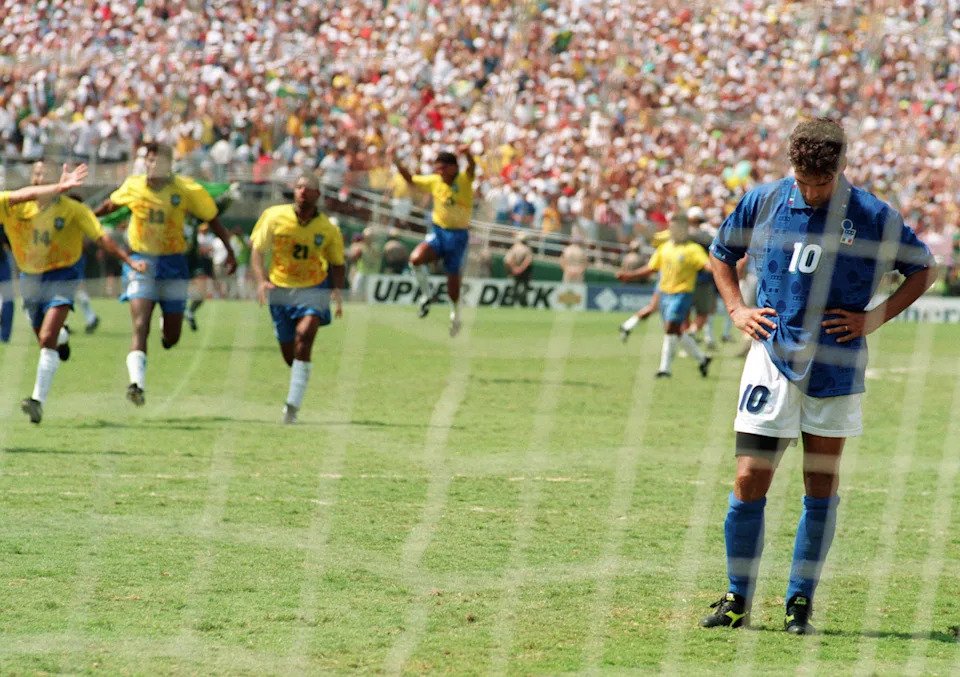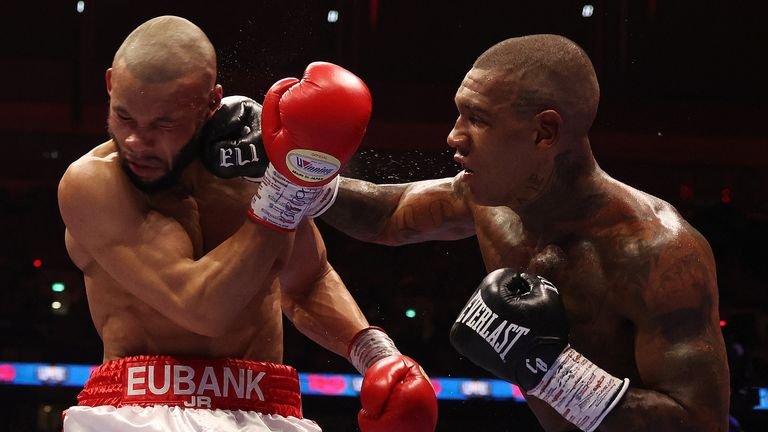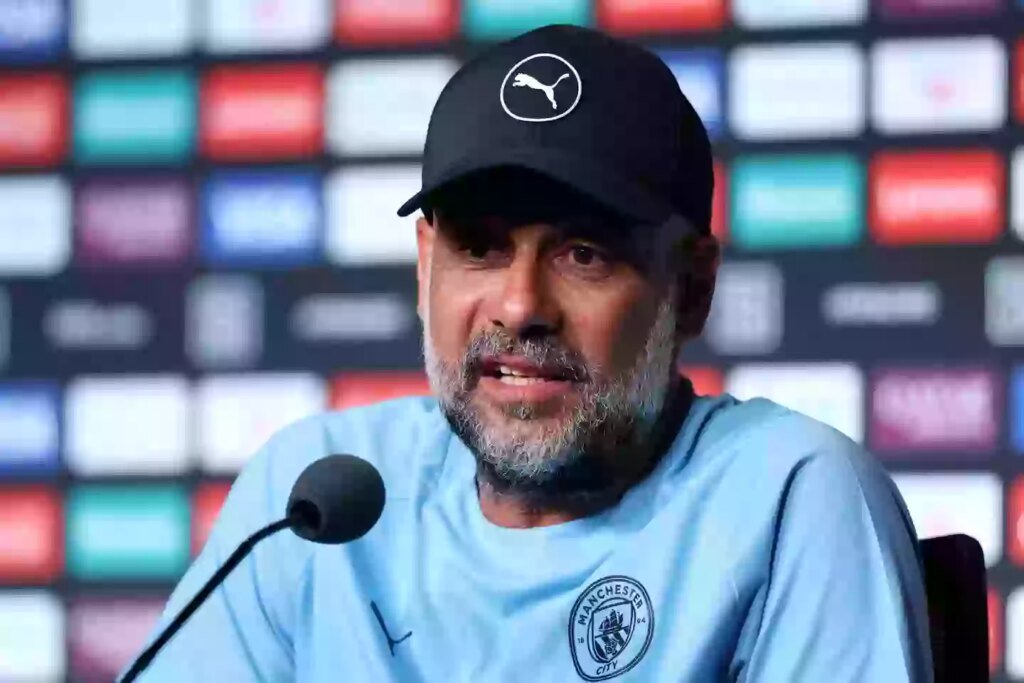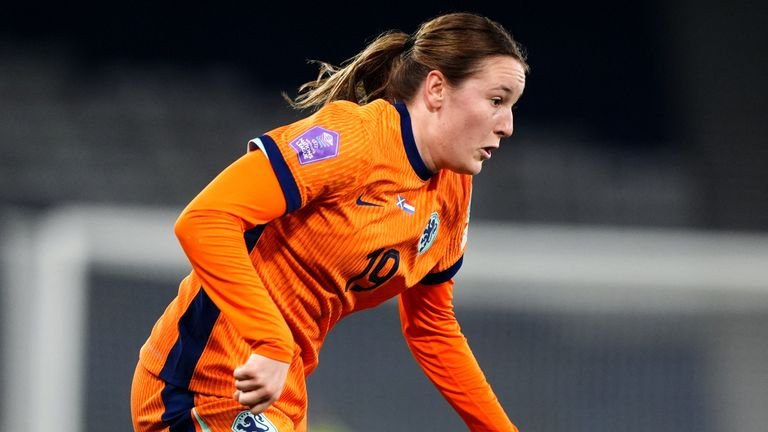It was the week before Lionel Messi’s 38th birthday. His wife, Antonella, must have been wondering what to get him. Then a gift arrived — early and unexpected — a special one that, judging from the boyish grin on Messi’s face, made him feel like a kid again.
Waiting for Messi at Inter Miami’s Florida Blue training facility was Roberto Baggio. He was in town for the Club World Cup, and when the opportunity presented itself to visit Messi, the hour in the car from Miami Beach to Fort Lauderdale, the grind of the Florida traffic, didn’t matter.
When Baggio played, he played for one reason and one reason only. It wasn’t for the money or the fame. He had a different motive. “To entertain the people,” he says. “That’s what I lived for. That was my dream. For the people to enjoy themselves. That was the mentality I had when I was 10, 15, when I was 20 until I retired.”
Messi has given Baggio the same feeling he gave supporters. And so, when they met, it wasn’t so much a meeting of two legends — it was a mirror, the smile of one reflected in the other.
Baggio had brought Messi one of the Italy jerseys he wore at the 1994 World Cup in the United States. “When he saw it, he got emotional,” Baggio says, happy and incredulous. “He caressed it, and folded it. It was a beautiful thing to see.”
Baggio was moved too. Within an hour, the photo Messi posted on his Instagram had been liked a million times. The caption was arguably as expressive and effusive as the Argentine has ever been off the pitch.

Baggio presents a signed shirt to a fan (Lionel Messi/Instagram)
“What a wonderful visit! Thank you, Roberto, for this special and meaningful gift and for the lovely chat we shared. You are a crack and a football legend. It will always be a pleasure to welcome you whenever you want to come and see us.”
That’s Baggio — someone the stars of the game are starstruck by. Someone who has never considered himself a star, even if his star shone the brightest in the galaxy of 90s Serie A.
The world-record transfer fee Juventus paid Fiorentina in 1990 didn’t change him; nor did the goal he scored against Czechoslovakia at the World Cup that summer, one of the greatest in the history of the competition — an exhilarating, socks-down dribble from the sideline of the halfway line. A goal that features on every montage in the run-up to the tournament, alongside those of Pele and Diego Maradona.
Baggio, an icon of the game, one of them.
“Thanks, but I don’t see it,” he says. And it isn’t false modesty. It isn’t an act.
When his daughter Valentina remarks that Messi’s post has gone viral, Baggio understands — but apparently without understanding why. The love for him in real life, not just the flourish of heart emojis online, comes as a surprise.
“I don’t know what to say to you. It’s hard to recognise myself among them. I’ve never felt that way. I’ve always felt like one of the billions of people walking this earth. I was lucky enough to play football and do what I love. But I don’t feel like them.”

Baggio surges past Diego Maradona during his Fiorentina days (Etsuo Hara/Getty Images)
The great American novelist John Updike once observed that fame is a mask that eats the famous — and Baggio wears no mask. Celebrity has never appealed to him. It never changed him. “Maybe it’s best to be unaware of it,” he says. “Maybe an awareness of it would change you. I don’t want to change.”
He still lives in the countryside where he grew up near Vicenza. Around the table, his family speak the local dialect of the Veneto region. At 58, he says: “I am the same person I was when I was 10. I’m passionate about the simple things in life.”
He hunts. He carves duck decoys. At heart, he’s always been a country boy. The supercars thundering past Miami Beach contrast with the FIAT Panda he has at home and the tractor he rides around his estate. He is a man of nature.
“I’m fortunate enough to live in a place with lots of greenery,” he says. “So I devote myself to its upkeep, mowing the lawn, doing maintenance and pruning the plants. I have to say that this takes my mind off things. It’s like the physical exertion of training.”
When Baggio made his final appearance for Brescia at San Siro — the Scala del Calcio — in 2004, he described retirement as a kind of deliverance. He suffered a career-ending injury as a teenager, but refused to let it end his career, finding strength through the Buddhism he discovered in a record shop while recuperating in Florence.
“I wouldn’t be the person I am if I hadn’t taken this path,” he says. “I’m 100 per cent sure of that. I practise every day. I know that when I practise (Buddhism), it brings out a part of my life that’s positive and beautiful. It transforms everything I do during the day.”
The application, the discipline, the serenity from the recitation of the daimoku helped Baggio overcome. Long surgical scars still trace like fault lines on his knees.
When his friend and former team-mate ‘Peppe’ Guardiola first introduced Baggio to Messi after a Champions League game in 2010, Guardiola told him: “I was lucky enough to play with (Baggio) when I was 31 after he’d had six or seven knee operations. He was the best player I ever played with.”
The toll football took on Baggio’s body was great. The price of entertaining the people and doing what he loved was high.
“I would finish training and go home,” he says. “It was an hour’s drive from Brescia to my house, and when I got back after an hour with my leg bent, I couldn’t straighten it. My wife, Andreina, knew. She would come down to help me, and I would stretch to be able to walk again. In the end, finishing playing was a liberation for me, a joy.”
Baggio was 37 when he called it a day. He had already prolonged his career longer than expected. He’d played for each of Italy’s big three — Juventus, Inter and Milan — but his club was always his country. His willingness to take his talent to Bologna and Brescia to give himself the best chance of making World Cup squads was a transcendental choice.

Ronaldo embraces Baggio during the 1997-98 season (Alessandro Sabattini/Getty Images)
It is particularly stark today, when so much of the narrative around the national team is about players pulling out, turning down call-ups, and leaving the impression that representing Italy is maybe not the greatest honour of their careers.
Moving abroad would have ruled Baggio out of contention for Italy, so he never did. Serie A’s status as the best league in the world at the time meant anything else was considered inferior, a step down.
But what if he’d played elsewhere?
“I always turned down teams outside of Italy,” he says, “because I dreamed of getting back into the national team and playing a World Cup in Japan (in 2002). I passed on it. There were opportunities but I always put them to one side. If you’re asking me whether I would have liked to play at the Bombonera, I’ll tell you: ‘Of course’. Of course I would have done, if I had been able to.”
This summer, Baggio attended both of Boca Juniors’ Club World Cup games at the Hard Rock Stadium. He has been a fan of theirs for years. It’s a passion his family shares. Going to watch Boca is like being at a concert where there happens to be football.
“I was given a CD in Argentina,” Baggio says. “It has songs from the ‘Doce’ (Boca’s ultras define themselves as the 12th man). They’re from 25 years ago, not today. The songs are beautiful and take you to another place. When you hear them, they make you want to sing even if you don’t know the words or the meaning behind them.
“I used to put the CD on when I took Valentina and Mattia (one of Baggio’s two boys) to school because I wanted them to rush off through those school gates like a shot, happy and excited. I made them sing along and they would go to school with a smile on their faces that would make your head spin. It was like medicine, truly joyful.”
Argentina holds a special place in Baggio’s heart. He has a ranch in La Pampa. It is somewhere he can get lost in and find stillness.
“There’s a purity in the air,” Baggio says.
“It stays with you. The flavours. The smells. It’s a place that obviously reminds me of many wonderful evenings with my father, my father-in-law, my brothers and friends, sitting in front of the fireplace with an ‘asado’ (barbecue). It’s a place I loved coming to, especially when I was playing, because it’s a place where I could escape from the world, get away from everything. There, I could clear my mind and relax because I was cut off from the world I lived in for 11 and a half months of the year.”
It’s where he spent what remained of the summer after the 1994 World Cup — when Baggio, the Ballon d’Or holder at the time, took over like Pele in 1970, Maradona in 1986, Zinedine Zidane in 1998, Ronaldo in 2002 and Messi in 2022. Without his goals in the knockout stages, Italy probably would not have made it all the way to the final in Pasadena.

Baggio was the driving force for Italy’s run to the 1994 World Cup final (Jerome Prevost/Getty Images)
Arrigo Sacchi’s Italy did not, to the great frustration of the media, play like Arrigo Sacchi’s Milan. The style of play fell below expectations. Baggio did not.
He got Italy back into the round of 16 game against Nigeria and scored the winner in extra time.
This led to FIFA president Gianni Infantino’s one run-in with the Swiss police. Infantino, then 24, got into his car with some friends and drove around town, beeping their horns, twirling their flags and singing songs in celebration. They were asked to desist and go home. They didn’t and Infantino, a law student at the time, argued why it was one rule for the Italians and another for the Swiss, whose fans had been just as boisterous after Switzerland beat Romania earlier in the competition.
Baggio entered a state of grace in that tournament. He prevented the quarter-final against Spain from going into extra time with an 88th-minute clincher. His double in the semi-final against Bulgaria set up a re-run of the 1970 World Cup final between Italy and Brazil, a game between the most successful nations from Europe and South America — a classic.
The heat of an American summer, as the 32 teams involved in the Club World Cup have found, was debilitating.
“The entire World Cup, not just our matches, was affected by the heat,” Baggio says. “It was mind-boggling. We had to exert ourselves beyond the limits of what was humanly possible to be able to play. But despite everything, we were driven by passion and the desire to achieve results, and many Italians who lived there as immigrants were proud of us. We felt it as a team. It was an extra push to overcome the obstacles.”
The weather. The coast-to-coast travel. The hurt. Franco Baresi came back 25 days after tearing his meniscus. He played, by his estimation, the best game of his career against Romario. Baggio too was a doubt and gave his all to make the difference against Brazil in a final that, perhaps unsurprisingly given the conditions, came down to a shootout.
Baresi missed. Daniele Massaro missed. Even if Baggio had scored his penalty, it probably would not have mattered. The next one for Brazil, if converted, would have won it regardless.

“If I had had a knife at that moment, I would have stabbed myself” (Omar Torres/Getty Images)
Baggio, meanwhile, lost more than a game that day. The Ballon d’Or went to Hristo Stoichkov. The FIFA World Player of the Year award ended up in the hands of Romario. The World Cup was lifted by Dunga, his old Fiorentina team-mate.
The penalty itself made little sense. Baggio always went low. It went high. He always scored. Just not this time, of all times.
“If I had had a knife at that moment, I would have stabbed myself,” he says. “If I had had a gun, I would have shot myself. At that moment, I wanted to die. That’s how it was.”
Baggio has had to carry that moment ever since. There is scant consolation in Brazil’s goalkeeper Claudio Taffarel claiming a higher power whispered to him seconds before Baggio’s penalty. The same goes for the belief among his team-mates that the great Ayrton Senna — who visited the team before he died at the San Marino Grand Prix in May — lifted the ball up and over the bar. Divine interventions against the Divine Ponytail.
But Baggio did not die on his feet in Pasadena. He played another 10 years. The fans didn’t forgive him because there was nothing to forgive. If anything, they loved him harder because Baggio played to make them forget their own problems.
And so they forgot Pasadena. They forgot it when he gave Bologna what, until recently, was the best season in a generation… when he qualified Inter for the Champions League with an epic display in a play-off against Parma… and when he combined with Andrea Pirlo and Guardiola at Brescia.
Those were the best days of a fanbase’s lives. And when Baggio retired in 2004, it felt like something ended in Italian football. It wasn’t Sunday anymore, as the pop star Cesare Cremonini sang.

Baggio with a young Pirlo at Brescia (Alessandro Sabattini/Getty Images)
Italy won the World Cup two years later — but it coincided with the Calciopoli scandal. And while the national team and representatives of Serie A have recently rebounded, ‘calcio’ misses Baggios. Genius cannot be mass-produced.
Italian football was spoiled through the 1990s and 2000s with Francesco Totti and Alessandro Del Piero. Three once-in-a-generation players played in the same generation — or thereabouts. Their absence on the pitch is keenly felt.
Italian football needs them.
After retiring, Baggio did his coaching badges.
“But I never took this thing seriously,” he says.
Guardiola would like him on his staff if, one day, he comes to work in Italy. Instead, Baggio briefly worked for the Italian Football Federation (FIGC) as the head of its technical department. It produced a 900-page report on the reform of youth development in Italy.
“The important thing was that we wanted to educate people to be people first and footballers second,” he says. “Not everyone will become a player, but everyone will be a person. That was the basis.”
The FIGC largely ignored it. And Baggio left in 2013. He was out of football for a long time, until very recently.
Then Infantino invited Baggio to the 2023 Under-20 World Cup in Argentina. Italy’s former coach Luciano Spalletti invited him and other great No 10s to visit the squad before last summer’s European Championship. Serie A followed by making him an ambassador. It was Baggio who brought out the trophy at the Coppa Italia final, which his old team, Bologna, won for the first time in 51 years.

Baggio with FIFA president Gianni Infantino at this summer’s Club World Cup (Rodolfo Buhrer/Getty Images)
This week, he has been in New York at a community project aimed at getting kids from the Bronx into football.
So, between working the land in his beloved Veneto, Baggio still follows the game?
“Absolutely,” he says. “I always watch lots of highlights on YouTube; the Italian, Argentine, English and South American leagues, both Brazilian and Argentine, sometimes Chilean or Paraguayan. Maybe there are people I know, like Martin Palermo, who coaches Club Olimpia (in Asuncion). I like to check out how he’s doing, if he’s doing well. I’m more attached to my friends. I always follow them.”
And they follow him. The original Ronaldo caught up with Baggio at the Club World Cup, as did other legends of the game. Current players, not just Messi, but Paul Pogba and Paulo Dybala, wanted a selfie with him. One of the most cherished shirts in Dybala’s collection at home is a Baggio-Brescia jersey.
Many wondered why he was no longer involved in football. Could he not be tempted to return?
For now, Baggio is happy to be back on the scene in his ambassadorial roles.
“I have to tell you that at a certain point in my life, I thought it was time to enjoy my family, to be close to them, to enjoy the simple things and do, above all, what I haven’t done for almost 40 years. So I chose freedom. And that’s priceless.”
And as the smile on Messi’s face showed, a meeting with Baggio is too.
(Top photos: Alekandra London, Juventus FC, Ben Radford/Getty; Design: Kelsea Petersen/The Athletic)

